11 start with E start with E
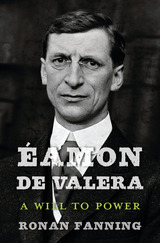
Éamon de Valera embodies Irish independence much as de Gaulle personifies French resistance and Churchill exemplifies British resolve. Ronan Fanning offers a reappraisal of the man who remains the most famous, and most divisive, political figure in modern Irish history, reconciling de Valera’s shortcomings with a recognition of his achievement as the statesman who single-handedly severed Ireland’s last ties to England.
Born in New York in 1882, de Valera was sent away to be raised by his mother’s family in Ireland, where a solitary upbringing forged the extraordinary self-sufficiency that became his hallmark. Conservative in his youth, he changed his name from Edward to Éamon when he became a member of the Gaelic League, the Irish language revival movement, in 1908. Five years later, he joined the Irish Volunteers, a nationalist military organization, and participated in the 1916 Easter Rising. Escaping execution afterward, he used his prestige as the senior surviving rebel officer to become the leader of Ireland’s revolutionary nationalists. But the iron will that was usually his strength became a fateful weakness when he stubbornly rejected the Anglo-Irish Treaty, sparking the Irish Civil War of 1922–1923.
De Valera’s vision for Ireland was blinkered: he had little interest in social and economic progress. But without him, Ireland might never have achieved independence. The nation was spared decades of unproductive debate on the pros and cons of remaining tied to Britain, and by 1973 it had enough self-confidence to surrender some of its sovereignty by joining the European Community.
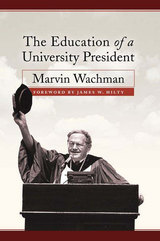
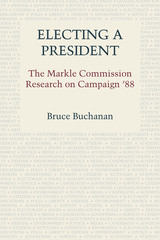
The image of a prison with a revolving door helped George Bush win the presidency in 1988, but did negative advertising damage the electoral process itself? Why did campaign ’88 represent an all-time low in the minds of many voters? These are some of the questions that impel this thought-provoking analysis of the 1988 presidential election, sponsored by the John and Mary R. Markle Foundation.
Using extensive empirical studies of the candidates, the media, and the voters, Bruce Buchanan, executive director of the Markle Commission on the Media and the Electorate, traces the roots of popular dissatisfaction with the 1988 election. Buchanan argues that the campaign drifted too far from popular ideals of how democratic processes ought to work—that the substitution of negative advertising and quickie “sound bites” for reasoned debate on national problems and issues alienated much of the electorate, causing the lowest voter turnout in sixty-four years.
Negative campaigning, however, cannot bear the full blame for the 1988 election. While the Markle Commission offers specific recommendations for improvements in candidate and media performance, the great need, says Buchanan, is for voters to reclaim the electoral process, to insist that candidates and the media give enough information about positions and programs for voters to make informed choices. Voters need to be educated out of the idea that democratic elections and representative government can somehow occur without the participation of ordinary citizens.
At a time when the American democratic process is being used as a model by newly independent nations around the world, it is particularly appropriate to ask how well it works at home. Electing a President does just that.
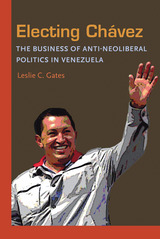
In Electing Chávez, Leslie C. Gates examines how Chávez won over voters and even obtained the secret allegiance of a group of business “elite outliers,” with a reinterpretation of the relationship between business and the state during Venezuela’s era of two-party dominance (1959-1998). Through extensive research on corruption and the backgrounds of political leaders.
Gates tracks the rise of business-related corruption scandals and documents how business became identified with Venezuela’s political establishment. These trends undermined the public’s trust in business and converted business opposition into an asset for Chávez. This long history of business-tied politicians and the scandals they often provoked also framed the decisions of elite outliers. As Gates reveals, elite outliers supported Chávez despite his anti-neoliberal stance because they feared that the success of Chávez’s main rival would deny them access to Venezuela’s powerful oil state.
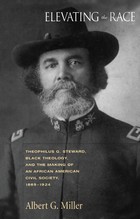
deeply committed to challenging his church’s outlook, he also epitomized postbellum efforts to create an African American civil society through religious, educational, and social institutions integral to citizenship.
Steward actively constructed a theological discourse that challenged both black and white religious and secular institutions, yet his tenacious pursuit of high standards often led him into conflict with the very community he served. A. G. Miller takes a new look at this
key figure in African American history to establish Steward’s place among the most influential thinkers and activists of the late nineteenth century. Augmenting what is already known about Steward’s life with a thoughtful combination of intellectual and social history,
Miller presents Steward’s ideas within the context of the social, political, economic, and religious trends of his day.
Miller examines Steward’s accomplishments and writings—including his unpublished manuscripts and his overlooked Victorian novel—to assess the ideas that he left to posterity and to consider how they shaped his times. The book devotes individual chapters to the
key themes that dominated Steward’s life: African American education, reconciling theology with modern science, the intersection of rational theology and moral virtues, the contradictions of race, the role of women in African American civil society, and Steward’s views on the military and imperialism.
With great insight and clarity, Miller discloses in a new and original way the rich life and thought of this extraordinary man. His study is both a groundbreaking analysis of Steward’s legacy and an important contribution to the history of American religious thought.
The Author: A. G. Miller is assistant professor of religion and Nord Faculty Fellow at Oberlin College and an ordained minister in the Pentecostal Church.

In this timely addition to the Ohio Short Histories of Africa series, Pamela Scully takes us from the 1938 birth of Nobel Peace Prize winner and two-time Liberian president Ellen Johnson through the Ebola epidemic of 2014–15. Charting her childhood and adolescence, the book covers Sirleaf’s relationship with her indigenous grandmother and urban parents, her early marriage, her years studying in the United States, and her career in international development and finance, where she developed her skill as a technocrat. The later chapters cover her years in and out of formal Liberian politics, her support for women’s rights, and the Ebola outbreak.
Sirleaf’s story speaks to many of the key themes of the twenty-first century. Among these are the growing power of women in the arenas of international politics and human rights; the ravaging civil wars in which sexual violence is used as a weapon; and the challenges of transitional justice in building postconflict societies. Ellen Johnson Sirleaf is an astute examination of the life of a pioneering feminist politician.
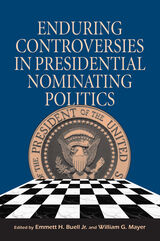
Enduring Controversies in Presidential Nominating Politics retraces the more than two hundred-year history of presidential elections in the United States to provide a primer on how the process has evolved from the days of the founders, through the heyday of nominating conventions, to today’s overwhelming interest in early primaries.
Original essays by the editors introduce, critique, and occasionally even refute a wide variety of historical readings including Alexander Hamilton’s defense of election procedures, excerpts of individual states’ nominations of candidates in 1824, an overview of the impact television has had on nominating conventions, and calls for a national rotating primary scheme in 2004. As a whole, the collection reveals the common threads that run through the history of the nominating process, and points out that today’s litany of complaints is not at all new.
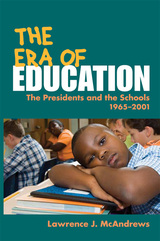
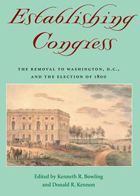
Establishing Congress: The Removal to Washington, D.C., and the Election of 1800 focuses on the end of the 1790s, when, in rapid succession, George Washington died, the federal government moved to Washington, D.C., and the election of 1800 put Thomas Jefferson and the Democratic-Republican Party in charge of the federal government.
Establishing Congress dispels the myths and misinformation that surround the federal government’s move to Washington and demonstrates that the election of 1800 changed American party politics forever, establishing the success of the American experiment in government and completing the founding of the Republic. It also contends that the lame-duck session of Congress had far-reaching implications for the governance of the District of Columbia. Later chapters examine aspects of the political iconography of the Capitol—one illuminating Jefferson’s role in turning the building into a temple for the legislature and an instrument for nation-building, another analyzing the fascinating decades-long debate over whether to bury George Washington in the Capitol.
The book considers as well the political implications of social life in early Washington, examining the political lobbying by Washington women within a social context and detailing the social and political life in the city’s homes, hotels, boardinghouses, and eating messes. Establishing Congress is an invaluable reference work for anyone interested in these pivotal moments in American history.
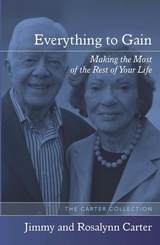

Eighteen distinguished scholars and practicing officials address the problems of executive leadership in the United States, Britain, Canada, and Australia. Individual essays focus on cabinet government; domestic, military, and economic advisers; executive agencies; and personal staff for presidents and prime ministers. Provocative comparisons between and among systems make the discussions particularly insightful.
READERS
Browse our collection.
PUBLISHERS
See BiblioVault's publisher services.
STUDENT SERVICES
Files for college accessibility offices.
UChicago Accessibility Resources
home | accessibility | search | about | contact us
BiblioVault ® 2001 - 2024
The University of Chicago Press









